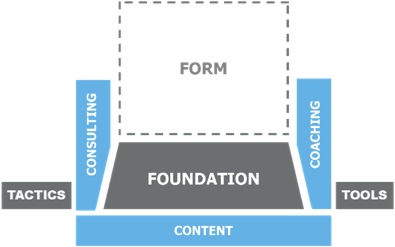Ask anyone who has ever started something from scratch and built it from the ground up and they will likely tell you it was one of the most challenging things they have ever done. Church planting is no exception. It is rewarding, but quite challenging. By definition, you are breaking new ground, and this means venturing into the unknown.
Most people setting out to plant a church actually look forward to this kind of adventure. The idea of striking out into the wide open frontier is enticing to them. They actually thrive on the idea of starting something from scratch.
There are certain rewards to being a pioneer: the thrill of discovery, a sense of adventure, the feeling of achievement when the task is done. All of this comes with the territory of pioneering. But there are also unique challenges to being a pioneer: you are often misunderstood, lack sufficient resources, have to play multiple competing roles, all while navigating lots of uncertainty and setbacks.
The ground breaking ministry of church planting is also a place where we discover new things about ourselves: good and bad. It is in the crucible of frontier work that our character is unearthed and brought to the surface. Our heart and soul are often laid bare. This experience opens us up to new possibilities for transformation and experiencing God’s grace and faithfulness.
At V3, we have assembled a team of seasoned church planters that are intimately familiar with the unique challenges that come with doing frontier work. We know firsthand the kinds of obstacles you will likely face, and are excited about the opportunity to walk with you as you meet them head on.
The Role of V3
In addition to seasoned practitioners, we also use a unique training system called G8 , a training process designed to expose planters to essential paradigms and practices of being and making disciples, leadership development, missional communities, and public gatherings, all undergirded with movemental sensibilities. In order to explain what we do as a training organization, we developed this illustration.

The role of V3 is kind of like scaffolding. We come along side you at the beginning of your plant and, using movemental tactics and tools, offer stimulating content, skills based coaching and strategic consulting to help you lay a foundation for a missional movement to emerge.
This approach to training is guided by Paul’s description of his ministry in I Corinthians 3:10 -11.
By the grace God has given me, I laid a foundation as a wise builder, and someone else is building on it. But each one should build with care. For no one can lay any foundation other than the one already laid, which is Jesus Christ.
If we look at the original language used by Paul, we can find several key principles for being a wise builder and therefore an effective church planter.
Tactics
Paul describes the nature of his apostolic ministry as being like a wise master builder. The word he uses for wisdom is sophia which carries the notion of knowing how things work.
Sometimes wisdom is about knowing what comes first, then second, then third. For example, in modern day construction you don’t start pouring concrete until you have laid pipe for the plumbing. Wisdom often reveals itself through the establishment of certain processes that allow work to be done in effective and efficient ways.
Sometimes wisdom is not so much about what comes first, but is more readily seen in knowing what not do so you can avoid unwanted consequences. Proverbs 24:3-4 says “Through wisdom a house is built, and by understanding it is established. By knowledge the rooms are filled with all precious and pleasant riches.”
Paul is saying that when he founded the Corinthian church he was strategic and methodical in how he went about his work. There were certain tactics that he used as he laid the foundation.
Tools
Paul also calls himself a master builder. The original word he used was architekton, which is where we get our word architect from.
Already we see notions of innovation and design coming to the fore. But more interesting still is the fact this word is actually a combination of two other words. The first is arche – meaning first or originator. This is the ground breaking, pioneering, aspect of church planting. The second word is tekton, which is where we get our word technology from. Paul is not only saying he uses certain tactics when planting churches, he is also saying that he uses certain technology, or tools, when he does it. For Paul, the task of church planting is a lot like the task of building a house. It not only requires breaking new ground, it also requires using certain tactics and tools to get the job done.
V3 training involves tools and tactics that are simple, sticky and scalable. The result is a distinctly movemental approach that positions planters for reproducibility and multiplication at every level.
V3 Learning Cohorts
In order to enrich the training process, we group planters and their teams into eight month Learning Cohorts that offer content, coaching and consulting.
Content
Each of the eight month Learning Cohorts starts and ends with a two and a half day intensive where you will be exposed to leading practitioners and thought leaders. In addition to these intensives, we offer monthly video conferences where we invite people who specialize in core competencies to share their experience, wisdom and insight on how to work through the practicalities of church planting.
Coaching
In order to customize the learning experience to each planters unique context, we do weekly coaching calls that are specifically designed to develop the necessary skills of being and making disciples, leadership development, missional communities, and public gatherings. These coaching calls are an hour long and focus planters on action based learning.
Consulting
While every church plant will have overlapping similarities, we know from experience that not every church plant develops in the same way. This is partly true because each planter has a nuanced vision of the kind of church they want to plant, but it’s also true because every context is different to varying degrees. Interspersed throughout the Learning Cohort will be opportunities for you to receive strategic consulting from coaches, specialists, practitioners, and thought leaders who can speak into the situational realities of your setting.
Focused Enough to Equip
All in all, the V3 training is focused enough to equip you for the task of church planting. Built into the very core of the training is the expectation that each planter will engage in the necessary task of innovation and design so they can submit to the existing cultural forms of their context, while simultaneously subverting the ways in which those cultural forms have functioned to perpetuate darkness and decay.
If you are interested in exploring what it would look like for you to make disciples, plant a church, and grow a movement with V3, fill out this planter questionnaire and we can start the conversation.
Register for a V3 Learning Cohort Today.
Share this Post

